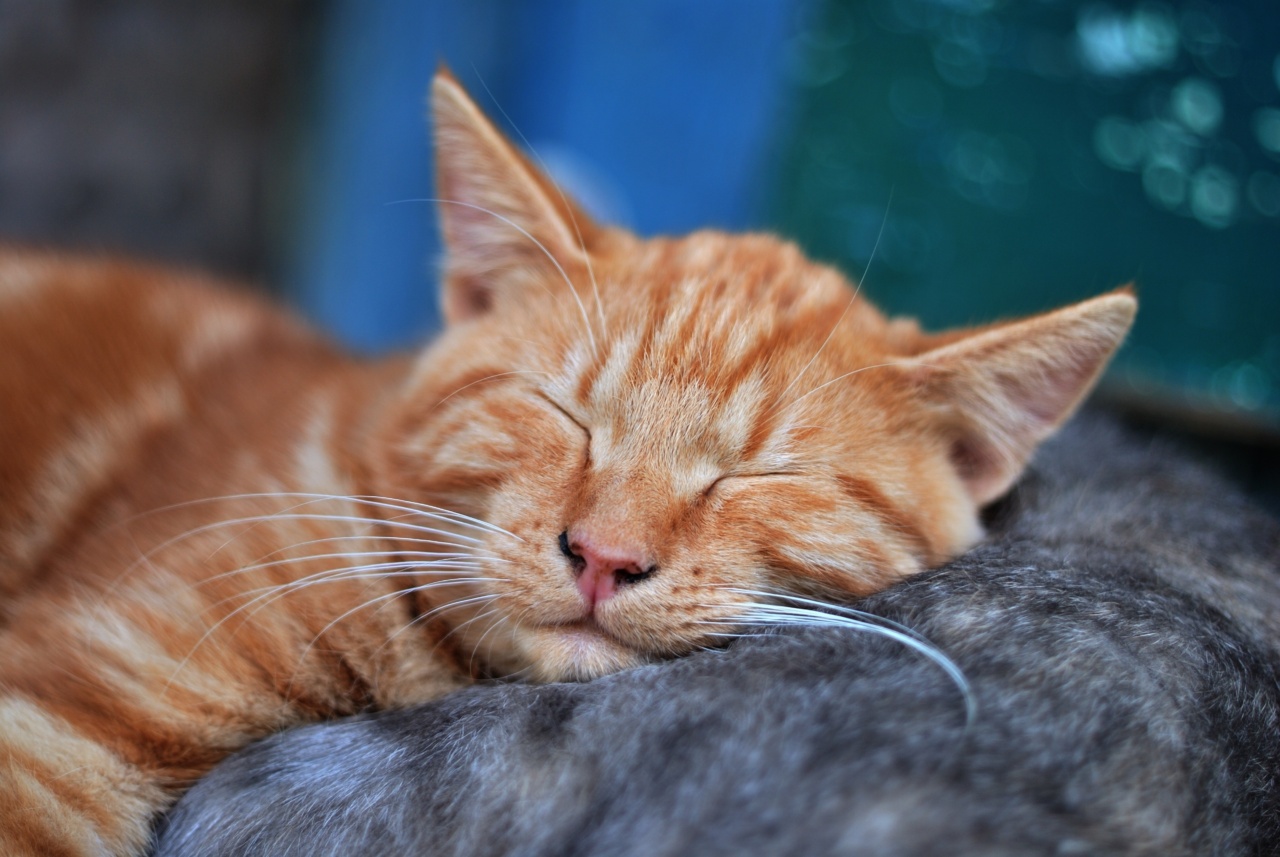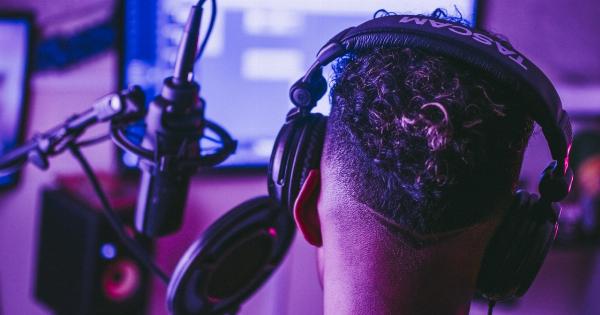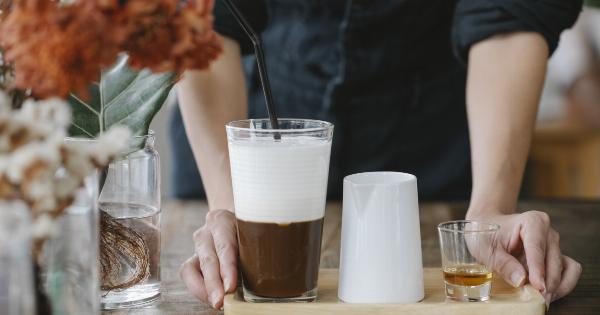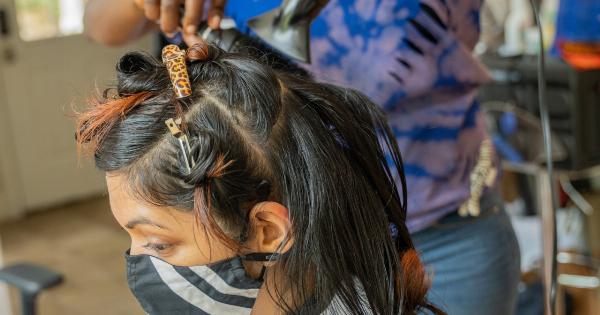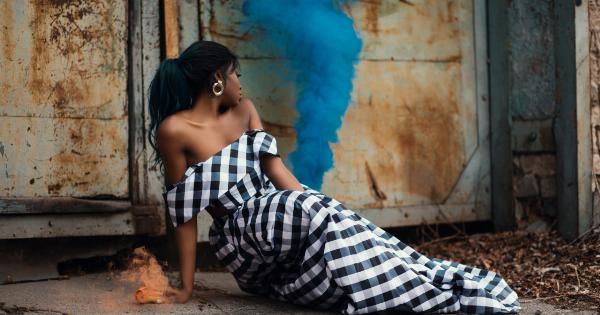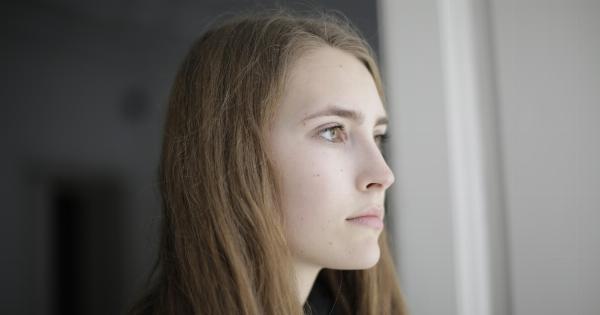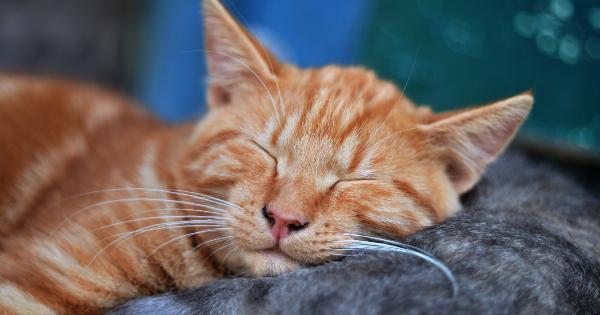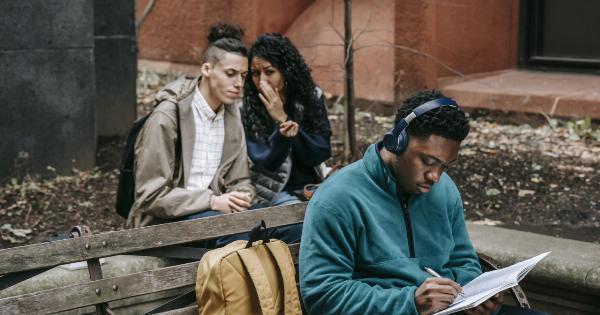Many of us have been guilty of going to bed with wet hair at least once in our lives. Whether it’s due to laziness, lack of time, or simply not caring about the consequences, sleeping with wet hair can be quite tempting.
However, what most people don’t realize is that this seemingly innocent habit can actually pose some serious risks to our hair and overall health. In this article, we will explore the dangers associated with sleeping with wet hair and explain why it’s important to take proper care of our locks before hitting the hay.
1. Hair Breakage
One of the main dangers of sleeping with wet hair is hair breakage. When our hair is wet, it is much more fragile and prone to damage. The friction between the wet strands and the pillow causes the hair to rub against the fabric, leading to breakage.
This can result in split ends, frizz, and overall weaker hair. Over time, the breakage can become more severe and even lead to noticeable thinning of the hair.
2. Scalp Infections
Another danger of going to bed with wet hair is the increased risk of scalp infections. When our hair is wet, it provides a perfect environment for bacteria and fungi to thrive.
The warm and moist conditions created by wet hair are an ideal breeding ground for microorganisms. If we sleep with wet hair regularly, our scalp becomes more susceptible to infections such as dandruff or even fungal infections like ringworm. These conditions can cause scalp irritation, itchiness, and hair loss if left untreated.
3. Mold and Mildew Growth
Sleeping with wet hair can also result in the growth of mold and mildew on our pillows. The moisture from our wet hair can seep into the pillow, creating a damp environment that promotes the growth of these unsightly and potentially harmful substances.
Mold and mildew can trigger allergies, respiratory problems, and skin irritation. To avoid these issues, it’s essential to ensure that our hair is completely dry before going to bed.
4. Cold and Flu
Believe it or not, sleeping with wet hair can actually increase your chances of catching a cold or flu. When our hair is wet, the moisture on our scalp can cool down our body temperature, making us more susceptible to cold viruses.
Additionally, wet hair can cause our pillow to become damp, creating an environment that supports the growth and spread of bacteria. So, if you want to stay healthy during the cold and flu season, make sure to dry your hair thoroughly before hitting the sack.
5. Increased Hair Loss
If you are already experiencing hair loss or are genetically predisposed to it, sleeping with wet hair can exacerbate the problem. Wet hair is more prone to tangling, and the tangles can lead to hair breakage when you move around in your sleep.
Additionally, the added weight and tension on the roots of wet hair can cause it to be pulled out more easily, ultimately resulting in increased hair loss over time.
6. Foul Odor
Leaving your hair wet for an extended period, such as overnight, can lead to a foul odor. When our hair is damp, it becomes a breeding ground for bacteria and fungi that can cause unpleasant smells.
These odors can be difficult to eliminate even after washing our hair, requiring additional effort to get rid of the lingering stench.
7. Skin Issues
Not only can sleeping with wet hair cause problems for our hair, but it can also affect our skin. The moisture from wet hair can transfer to our face and neck, leading to clogged pores and acne breakouts.
Additionally, if we sleep with wet hair on a regular basis, the constant dampness can cause skin irritation and rashes, especially for those with sensitive skin.
8. Pillow Stains
Wet hair has a higher chance of leaving stains on your pillow. Whether it’s from the natural oils in your hair, hair products, or even hair dye, damp hair is more likely to transfer substances onto your pillowcase.
These stains can be difficult to remove and may require additional washing or stain treatment, reducing the lifespan and appearance of your beloved pillows.
9. Disrupted Sleep Patterns
Trying to sleep with wet hair can also disrupt our sleep patterns. The dampness and discomfort caused by wet hair can make it more difficult for us to fall asleep or stay asleep throughout the night.
We may find ourselves constantly readjusting our position or waking up with a damp and cold pillow, leading to a restless and disturbed sleep.
10. Damaged Bedding
Lastly, sleeping with wet hair can cause damage to our bedding. The moisture from our hair can seep into the pillow, mattress, and even the sheets, potentially leading to mold and mildew growth.
Furthermore, the frequent washing and drying required to remove the dampness and smells from the bedding can shorten their lifespan and add unnecessary wear and tear.
In conclusion, while it may be tempting to hit the hay with wet hair, the dangers associated with this habit should not be overlooked.
From hair breakage and scalp infections to mold growth and disrupted sleep patterns, the risks posed by sleeping with wet hair can have long-term consequences for both our hair and overall well-being. Taking the time to properly dry our hair before bedtime can go a long way in maintaining healthy and beautiful locks.
So, the next time you’re tempted to crawl into bed with wet hair, remember the potential dangers and make the effort to protect your hair.
